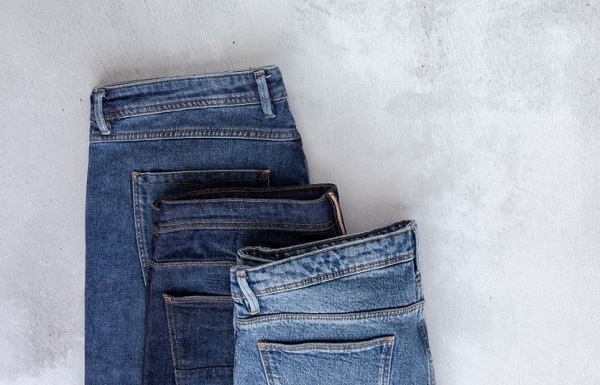
Moving out of the food domain, veganism is now making inroads into the denim industry with many brands introducing animal-free denims into their collections. The trend is currently being led by AG Jeans which has launched a men’s and women’s capsule collection of vegan leather pants, shorts and shacked. The collection outsteps the softest leather, says the brand. Each garment of the collection has been made using the same seam sealing techniques applied to real leather garments. Resembling real seam placements for an authentic look, the collection boasts of soft-touch matter rubberized hardware finishing made from recycled materials.
Constant scrutiny highlights brand’s apathy to environment
Over years, the denim industry has introduced many alternatives to water-intensive crops and chemical-powered washing processes. Yet, each of the materials used by the industry and its production processes are constantly scrutinized.
In 2019, People for the Ethical Treatment for Animals (PETA) reprimanded Levi’s, for using animal-derived leather in its collections. Though the brand claimed to use Forest Stewardship Council (FSC)-certified Jacron paper in its collection, PETA bought the company’s shares to prevent it from passing shareholder resolutions and securing speaking rights at annual meetings. In 2020, the animal-rights group also launched a petition urging Levi’s to go vegan in its collections. The petition was signed by over 125,000 people
Brands uphold consumers’ values
Forecasted to reach $1.1 billion by 2027, the vegan fashion market is being dominated by brands adhering to the values of millennials and Gen Z consumers, says an Edited report. PETA also lauds other brands like Kings of Indigo American Eagle, Boyish, Closed, Mother, Uniqlo, etc for using non-leather patches in their collections.
However, industry leaders are skeptical about the materials used in these collections and their sustainability. Most often vegan materials are made from synthetic fibers such as petroleum-based polyurethane (PU) or polyvinyl chloride (PVC), which is an extremely harmful variety of plastic, as per Greenpeace. Both these materials are made from fossil fuels and are not biodegradable, says Elif Haslaman, General Manager, DeriDesen Etiket, a Turkish trims manufacturer.
Most trims manufacturers are looking for responsible vegan alternatives like Pineapple leather, apple skin, cork, organic fabrics and stone paper. Some of these materials are certified by Global Recycle Standard (GRS), Oeko-Tex, FSC and Global Organic Textile Standard (GOTS).
Vegan jeans are also a part of the new collections aligning with Ellen MacArthur’s Jean Redesign project, an industry-wide effort to introduce circular jeans in the market. The guidelines of the project urge brands to disassemble trims carefully for recycling. A few participants of the project like Blue of a Kind and H&M are opting for patch-free circular jeans while others such as Tommy Jeans are using laser-print pieces of sustainable denims n their Jean Redesign collections.
Increased use of vegan materials
The percentage of sustainable vegan alternatives in denim collections is rising. Since 2020, Haslaman has been using certified sustainable materials in 80 percent of its DeriDesen’s collection. The company further aims to increase this percentage to 95 in 2021.
The year 2020 proved to be watershed year for the denim industry as it reinforced the sector’s commitment to sustainability. The year called for a more sustainable, ethical and ecological approach to designing and manufacturing vegan denims. The trend is likely to continue and prove as a great restart for the future denim industry.












